The Answer
The Answer is a one-page response to questions many of our readers find themselves being asked over and over, whether by colleagues, potential partners, funders, policymakers, or the public. It’s easy to download and print and it’s free to distribute with our credit on it.
Let us know how you are using The Answer, and also to get your suggestions for other questions to address.
Email The AnswerThe Latest
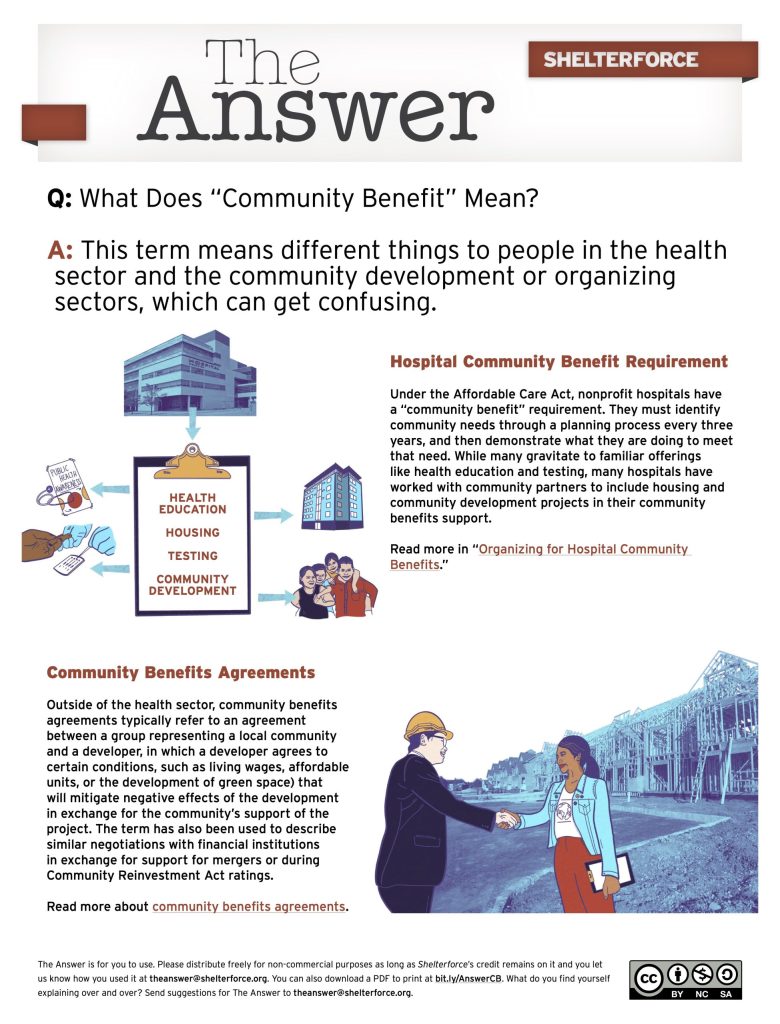
Q: What Does ‘Community Benefit’ Mean?
A: This term means different things to people in the health sector and the community development or organizing sectors, which can get confusing.
Search & Filter Within this Topic
filter by Topic
filter by Date Range
search by Keyword
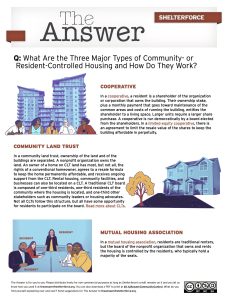
Q: What Are the Three Major Types of Community- or Resident-Controlled Housing and How Do They Work?
There’s a lot of momentum toward resident-controlled housing. Do you know the three major forms it takes?
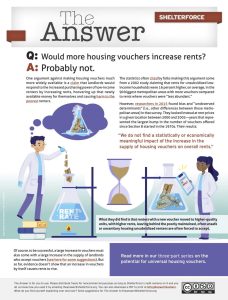
Q: Would More Housing Vouchers Increase Rents?
A: So far, researchers haven’t found that an increase in vouchers by itself causes rents to rise.

Q: Does the CDC’s Extension of the Eviction Moratorium Mean No One Is Being Evicted Now?
Even with the moratorium in place through July 31, there have been and will continue to be many, many Americans who lose their homes.
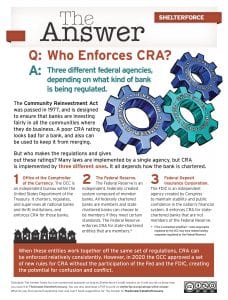
Q: Who Enforces CRA?
Why are there three different agencies enforcing the Community Reinvestment Act, or CRA? Who does each agency enforce it on?

Q: What Do All These Rent Regulation Terms Mean?
As rents have been rising, organizing for rent regulations have gained steam. However, the terms used to describe rent regulations can be unclear.
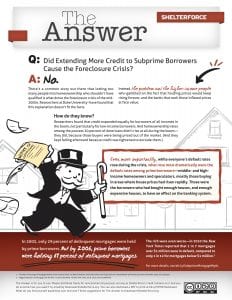
Q: Did Extending More Credit to Subprime Borrowers Cause the Foreclosure Crisis?
There are people who believe that the foreclosure crisis occurred because too many unqualified borrowers became homeowners. What actually happened was …
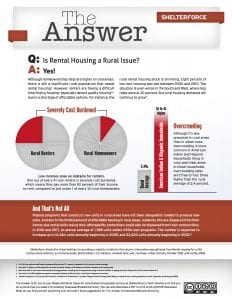
Q: Is Rental Housing a Rural Issue?
Yes! Although homeownership rates are higher in rural areas, there is still a significant rural population that needs rental housing.
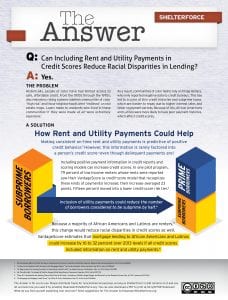
Q: Can Including Rent and Utility Payments in Credit Scores Reduce Racial Disparities in Lending?
Including rent and utility payments in credit reports and scoring models can increase credit scores, and reduce racial disparities in credit scores.
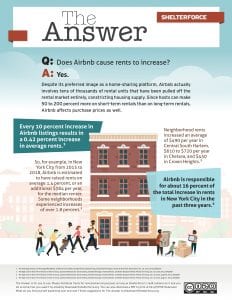
Q: Does Airbnb Cause Rents to Increase?
A: Yes! Since hosts can make 50 to 200 percent more on short-term rentals than on long-term rentals, Airbnb affects purchase prices as well.
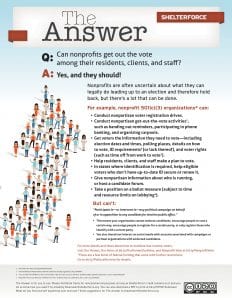
Q: Can Nonprofits Get Out the Vote?
A. Yes! Nonprofits are often uncertain about what they can legally do, but they can get out the vote among their residents, clients, and staff.
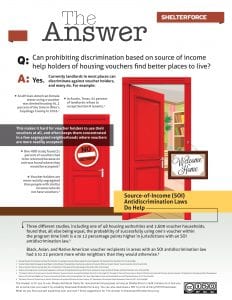
Q: Can Prohibiting Source-of-Income Discrimination Help Voucher Holders?
A: Yes. Landlords in most places can discriminate against voucher holders, and many do. This often keeps voucher holders in a few segregated neighborhoods.
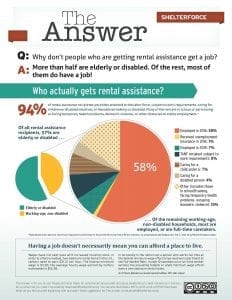
Q: Why Don’t People Who Get Rental Assistance Get a Job?
A: More than half are elderly or disabled. Of the rest, most of them do have a job! Ninety-four percent of rental assistance receipts are …
